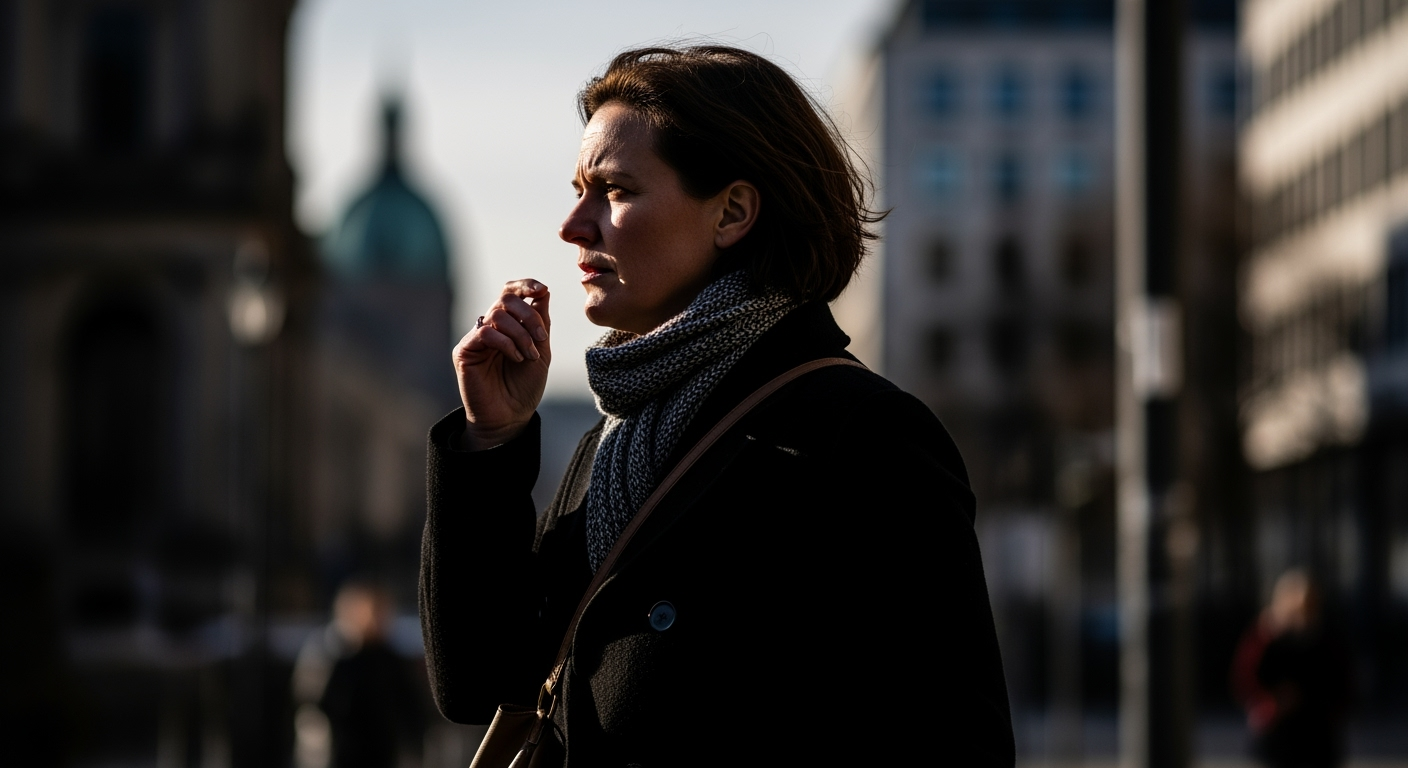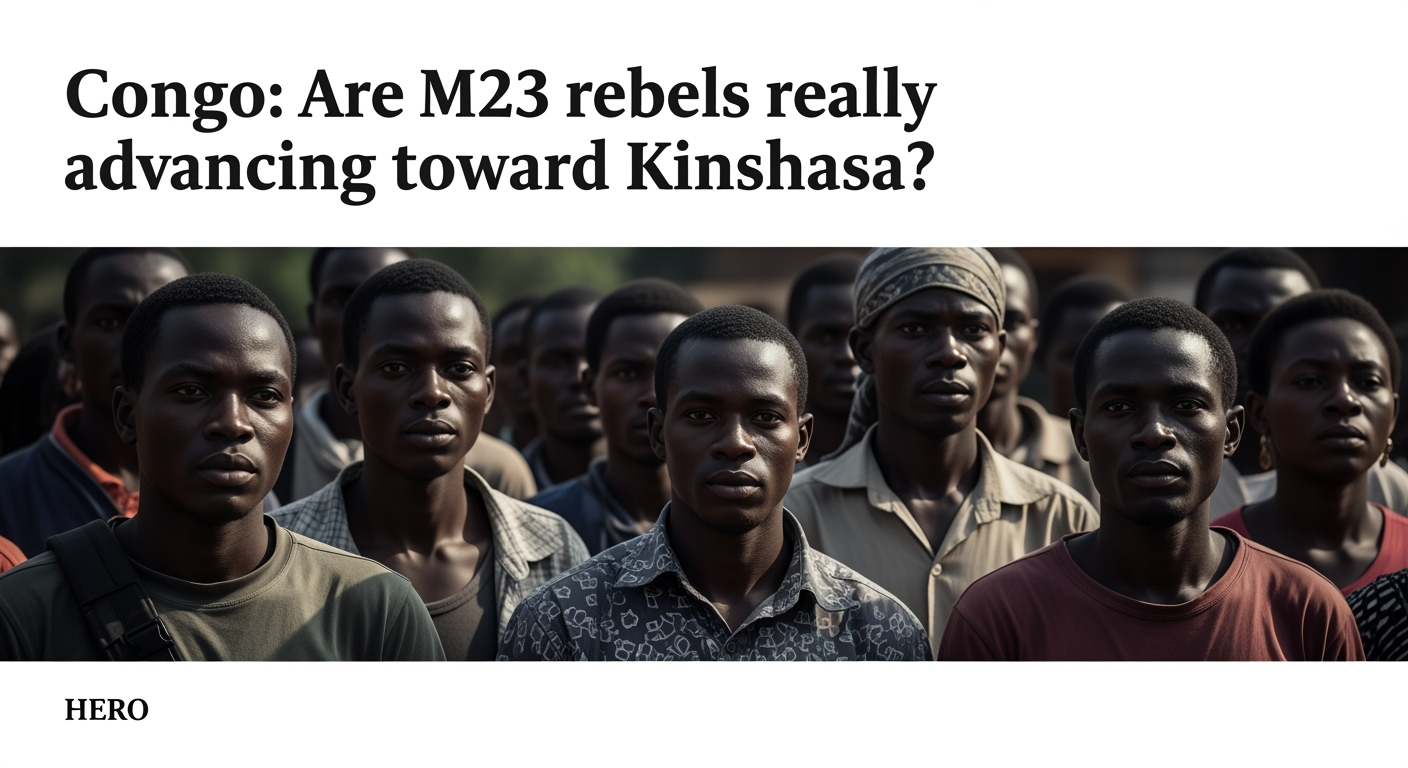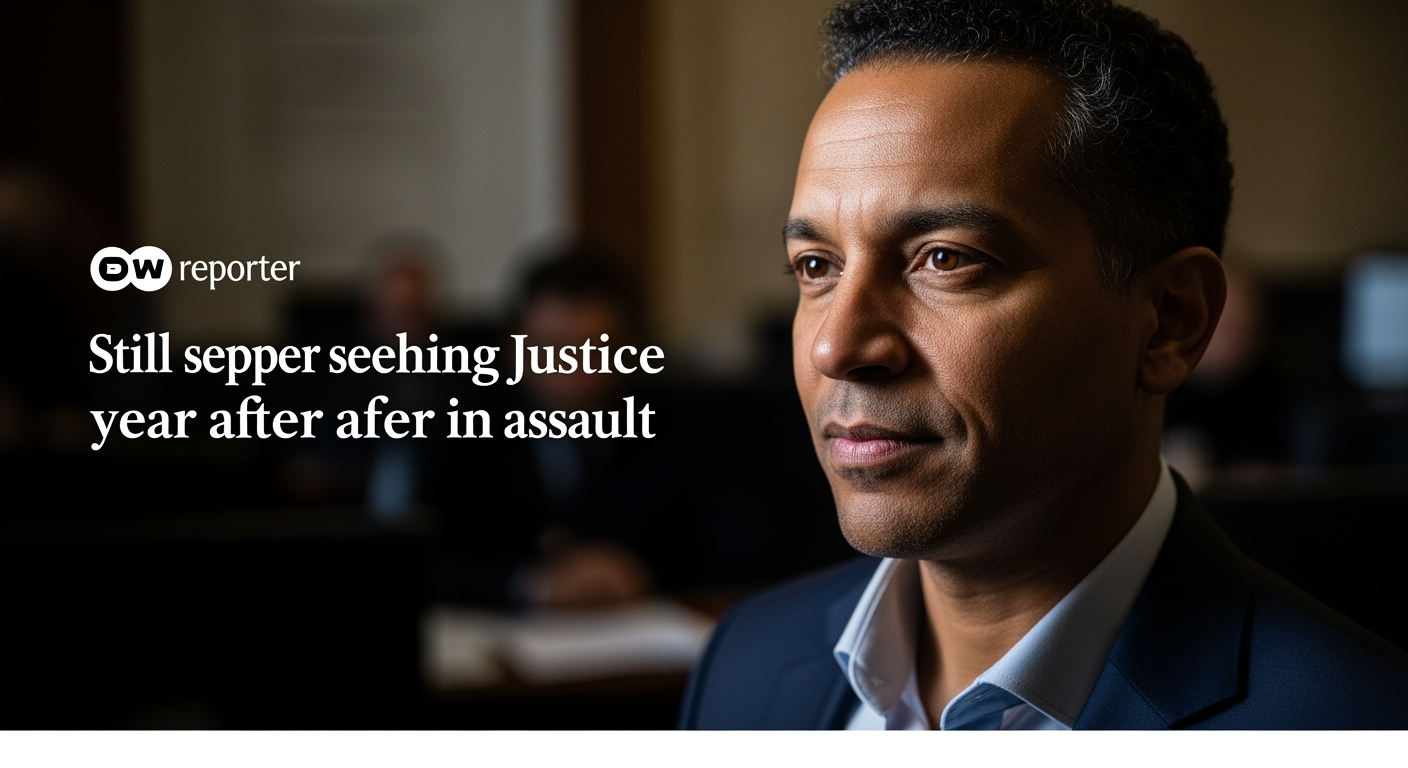Related Articles

Germany Grapples with Criminalizing Catcalling: A Debate Over Public Space and Dignity

Western Technology Continues to Fuel Russian War Machine Amid Sanctions Debate





One year after a violent assault in Düsseldorf, Deutsche Welle (DW) reporter Adonis Alkhaled is still seeking justice, with the police investigation into the October 2024 incident remaining inconclusive. The attack, which left Alkhaled hospitalized, has drawn condemnation from media organizations and government officials alike, casting a stark light on the growing dangers faced by journalists in Germany and beyond. Despite video evidence and a filed criminal complaint, the protracted nature of the inquiry underscores persistent challenges in prosecuting crimes against media professionals.
The incident occurred in October 2024 when Adonis Alkhaled, a Syrian-German TikTok team lead for DW's Arabic service, was covering a concert by Syrian hip-hop artist Al Shami at the Mitsubishi Electric Halle in Düsseldorf. Alkhaled and a colleague were conducting an interview when "security concerns" prompted them to conclude their reporting. As they were leaving, Alkhaled was reportedly accosted by men he described as appearing to be part of the singer's security detail. He was allegedly pushed into a backyard and subjected to a severe beating, with the attackers making homophobic comments and derogatory remarks about DW. Alkhaled later described the assault as "super scary," likening his assailants' technique to that of "professional boxers." He sustained injuries that necessitated emergency hospital treatment.
In the immediate aftermath of the assault, Alkhaled filed a criminal complaint. The incident garnered significant media attention and widespread condemnation, including from the state media minister, a spokesperson for then Chancellor Olaf Scholz, Germany's main journalists' union (DJV), and Reporters Without Borders. The Committee to Protect Journalists (CPJ) also urged German authorities to conduct a swift and transparent investigation, emphasizing that journalists must be able to work without fear of violence. Al Shami's press spokesperson indicated a willingness to cooperate fully with the investigation.
However, one year later, the police investigation remains ongoing, with no clear outcome. Düsseldorf police have declined to comment on the specifics of the case, citing the active nature of the inquiry. State prosecutors have similarly not responded to requests for information regarding the progress of their investigation into "unknown men suspected of malicious injury and defamation." The prolonged wait for accountability has left Alkhaled and press freedom advocates concerned about the efficacy of justice for journalists.
The assault on Adonis Alkhaled is not an isolated event but rather indicative of a disturbing trend in Germany. Reporters Without Borders (RSF) reported a "dramatic increase" in attacks on journalists in 2024, with 89 incidents documented, more than double the 41 cases recorded in 2023. This surge is surpassed only by the 103 cases in 2022, highlighting a growing "animosity toward the press and a narrowed understanding of press freedom," particularly exacerbated since the COVID-19 pandemic.
Attacks have manifested in various forms, including physical violence, threats, and verbal abuse. While many incidents have occurred at demonstrations, the assault on Alkhaled at a concert points to the unpredictable nature of threats faced by media professionals in diverse settings. The failure to swiftly resolve such cases can create a chilling effect, potentially deterring journalists from pursuing stories critical to public discourse and undermining the fundamental principles of a free press.
Beyond the statistics, the assault on Alkhaled carries a profound human cost. Journalists, often working under challenging conditions to inform the public, become targets simply for doing their job. Alkhaled's experience underscores the physical and psychological toll such violence can inflict. His determination to seek justice, even a year later, serves as a powerful reminder of the personal stakes involved in press freedom.
Media organizations and advocacy groups continue to stress the importance of ensuring the safety of journalists and bringing perpetrators to justice. The lack of resolution in cases like Alkhaled's can embolden those who seek to silence the press and undermine democratic values. Accountability is crucial not only for the individual victim but also for upholding the broader principle that journalism is not a crime.
The one-year mark since the violent assault on DW reporter Adonis Alkhaled in Düsseldorf serves as a critical juncture. While the details of the incident itself are clear, the wheels of justice have turned slowly, leaving Alkhaled and his supporters in a prolonged state of uncertainty. This case, alongside the broader rise in attacks on journalists in Germany, poses a significant challenge to the nation's commitment to press freedom and the rule of law. The ongoing investigation into "unknown men" continues to be a test of whether authorities can ensure the safety of media workers and demonstrate that such assaults will not go unpunished. The outcome of this pursuit for justice will inevitably send a strong message regarding the value placed on independent journalism in an increasingly volatile media landscape.